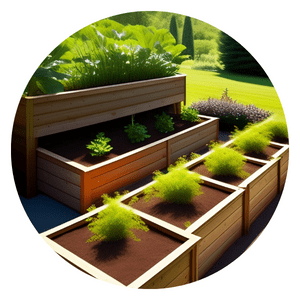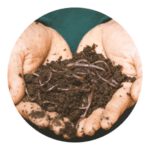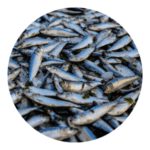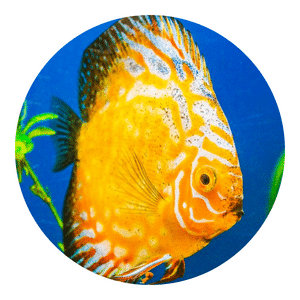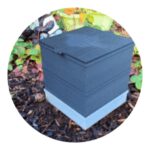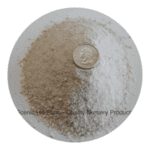Chicken Manure Organic Fertilizer
Chicken manure can be a valuable fertilizer for garden plants.
It is high in nitrogen and phosphorus, which are important nutrients for plants.
Chicken manure also has enzymes that break down plant cell walls, making it an effective fertilizer.
Chicken Manure Menu
What is chicken manure?
Chicken manure is a type of manure that is created when chickens excrete.
It is high in nitrogen and phosphorus, making it an excellent fertilizer for plants.
Chicken manure can be used as a soil amendment to improve the quality of the soil, or it can be applied directly to plants as a fertilizer.
Benefits of chicken manure for gardens
When it comes to fertilizers for gardens, chicken manure is a great option.
It is high in nitrogen and phosphorous, which helps plants grow big and strong.
Not only does chicken manure help plants grow, but it also helps keep the soil healthy by adding organic matter.
Using chicken manure as a fertilizer is a great way to recycle waste and provide your garden with the nutrients it needs to thrive.
How to use chicken manure in your garden
Chicken manure is a valuable and organic fertilizer for gardens.
It is high in nitrogen and phosphorous, which helps plants to grow healthy and strong.
Chicken manure can be used fresh or composted.
Fresh chicken manure should be worked into the soil around plants about four weeks before planting.
Composted chicken manure can be sprinkled around plants as a top dressing.
Chicken manure is one of the best organic fertilizers. It's high in nitrogen and other nutrients that plants need. Plus, it's free and easy to get - just ask your local farmer. Chicken manure will give your garden a boost, helping your plants to grow healthy and strong. So if you're looking for a natural way to fertilize, chicken manure is the way to go.
Chappy The Gardener
When to apply chicken manure
Farmers have long used chicken manure as a natural fertilizer.
It is high in nitrogen and phosphorus, which are essential nutrients for plants.
Chicken manure can be applied to crops either in the form of solid or liquid manure.
The best time to apply chicken manure depends on the crop and the region where it is grown.
What to watch out for when using chicken manure
When using chicken manure as a fertilizer, there are a few things to watch out for.
The first is to make sure that the manure is well-composted.
Fresh chicken manure can contain high levels of nitrogen and phosphorus, which can be harmful to plants if not diluted or composted first.
Another thing to watch out for is the pH of the soil.
Chicken manure has a high pH, so it can raise the pH of soil if used in large quantities.
This can be harmful to plants that prefer a lower pH level.
Finally, you should always monitor the moisture levels of soil when using chicken manure.
Excess moisture can cause problems such as root rot, while too little moisture will not allow the nutrients in the chicken manure to reach the plants.
Tips on how to use chicken manure in your garden
As the weather starts to warm up, many gardeners are gearing up for another season of planting and growing.
If you’re looking for a natural, organic way to promote healthy plant growth in your garden, chicken manure may be just the thing for you.
Here are a few tips on how to use chicken manure in your garden:
1. Manure can be used as a soil amendment to improve soil quality. It is high in nitrogen, phosphorus, and potassium, which are essential nutrients for plants.
2. Chicken manure should be composted before being used in the garden to reduce the risk of plant diseases and pests. Composting also helps to break down any harmful pathogens or bacteria in the manure.
3. When adding manure to your garden, mix it into the top layer of soil and then water it in well.
Can you put chicken manure straight on the garden?
No one ever said that organic gardening was easy, but is it worth the effort?
In order to answer this question, it is important to understand what organic gardening is.
Organic gardening is a type of gardening that uses natural methods to care for and grow plants.
This includes using natural fertilizers such as chicken manure.
Chicken manure is a great choice for organic gardeners because it is high in nitrogen.
However, there are some things you need to know before you put chicken manure straight on the garden.
First, you should mix it with other materials like straw or compost to help break down the manure.
Second, make sure you only use manure that is aged or composted. Fresh chicken manure can burn plants if applied directly to the soil.
What plants benefit from chicken manure?
Chicken manure is one of the best fertilizers for plants.
It is high in nitrogen and phosphorous, which are two of the most important nutrients for plants.
Chicken manure also contains potassium and other micronutrients that are beneficial to plants.
Chicken manure can be used to fertilize any type of plant, but it is especially beneficial to vegetables, fruits, and flowers.
How often should I put chicken manure in my garden?
The best time to add chicken manure to your garden is in the fall, but you can also add it in the spring.
You don’t want to add too much, though, or your plants will be burned by the high levels of nitrogen in the manure.
It’s a good idea to mix the manure with some soil before you add it to your garden.
Is chicken manure good for tomatoes?
One of the most frequently asked questions about gardening is whether or not chicken manure is good for tomatoes.
The answer to this question is a little complicated.
Chicken manure does have some benefits for tomatoes, but it can also cause some problems.
Chicken manure is a high-nitrogen fertilizer that can be used to improve the soil and increase crop yields.
It is especially beneficial for plants that need a lot of nitrogen, such as tomatoes.
Chicken manure also contains phosphorus and potassium, which are essential nutrients for plants.
However, too much chicken manure can be harmful to plants. It can cause them to grow too fast and become weak and susceptible to disease.
In addition, chicken manure can attract pests and rodents.
For these reasons, it is important to use caution when applying chicken manure to your garden.
How long does it take chicken manure to break down?
The length of time it takes chicken manure to break down depends on the type of manure, the climate, the soil type and the amount of organic matter in the soil.
Fresh chicken manure will break down more quickly than aged chicken manure.
Chicken manure can also be composted to speed up the breakdown process.
What is the best way to use chicken manure?
When it comes to organic gardening, chicken manure is a highly prized commodity.
Farmers and gardeners have long recognized the benefits of using chicken manure as a fertilizer. It is high in nitrogen, phosphorus and potassium, which are essential nutrients for plants.
Chicken manure also contains other beneficial compounds that help plants grow healthy and strong.
There are many ways to use chicken manure in the garden. One popular method is to compost it.
Composting chicken manure helps break down the raw materials in the manure and makes them more available to plants.
Another way to use chicken manure is to mix it with soil before planting vegetables or flowers. This will help improve the soil structure and increase its nutrient content.
Chicken manure can also be used as a foliar feed, which means it is sprayed directly on the leaves of plants.
In conclusion, using chicken manure for your garden is a great way to improve the quality of your soil.
Not only is it rich in nutrients, but it is also an organic way to fertilize your plants.
If you have any questions about using chicken manure for your garden, be sure to ask Chappy the gardener below. Thanks for reading!
Organic Fertilizer FAQ
Organic fertilizer is made from natural materials that improve the quality of your soil, such as manure, compost, and leaves. Synthetic fertilizer is made from chemicals that can harm your soil, plants, and animals. Here are four reasons to choose organic fertilizer over synthetic:
1. Organic fertilizer improves the quality of your soil. Over time, synthetic fertilizers can break down the structure of your soil, making it harder for roots to penetrate. This can lead to water runoff and soil erosion.
2. Organic fertilizer is safer for your plants. Chemicals in synthetic fertilizers can burn your plants’ roots, especially if you use too much or apply them during hot weather.
3. Organic fertilizer is safer for wildlife. Animals can be harmed by eating plants that have been treated with synthetic fertilizers.
NPK stands for nitrogen, phosphorus, and potassium, which are the three essential nutrients that all plants need to thrive. NPK fertilizer is a type of fertilizer that contains these three nutrients in varying proportions, depending on the specific formulation.
Nitrogen is responsible for promoting leaf growth, phosphorus helps with root development and flowering, and potassium aids in overall plant health and vigor.
By using NPK fertilizer, gardeners can ensure that their plants are getting the right balance of nutrients to grow healthy and strong.
Fertilizers are important for plant growth and development. They provide essential nutrients that plants need to survive and thrive. Fertilizers can be organic or inorganic, and each has its own benefits and drawbacks.
Organic fertilizers are made from natural materials like compost or manure. They release nutrients slowly, so they need to be applied more often than inorganic fertilizers. However, organic fertilizers improve soil health and help build up beneficial microbes that support plant growth.
Inorganic fertilizers are made from synthetic materials like nitrogen, phosphorus, and potassium. They release nutrients quickly, so they don’t need to be applied as often as organic fertilizers. However, inorganic fertilizers can damage soil health and harm beneficial microbes if they’re not used carefully.
When it comes to fertilizers, the three key nutrients are nitrogen (N), phosphorus (P) and potassium (K). These are typically represented by the NPK value on the fertilizer package. For example, a 10-10-10 fertilizer has an NPK value of 10-10-10 and contains 10% nitrogen, 10% phosphorus and 10% potassium.
So, are higher NPK amounts better? It depends.
If your soil is already high in one or more of these nutrients, adding more of that nutrient isn’t going to help your plants. In fact, it could actually do more harm than good.
For example, if your soil is high in phosphorus and you add a fertilizer with a high phosphorus content, you could end up with an imbalance that could hurt your plants.
Organic fertilizer is made from natural materials and helps to improve the quality of your soil while providing essential nutrients for your plants.
You may need to add organic fertilizer to your garden if you notice that your plants are not growing as well as they should, or if the leaves are yellowing or falling off.
If you are unsure whether your plants need fertilizer, it is best to consult with a gardening expert. They will be able to help you determine which type of fertilizer is best for your garden, and how often you should apply it.
Organic fertilizer is a great way to add nutrients to your soil, but you may be wondering how long it will last. Here is a general guide to the shelf life of organic fertilizer:
Composted manure – 1 to 2 years
Uncomposted manure – 6 months to 1 year
Poultry manure – 6 months
Cottonseed meal – 2 to 3 years
Alfalfa meal – 2 to 3 years
Bone meal – 1 to 2 years
Seaweed/kelp meal – 1 year
As you can see, there is a wide range of shelf life for different types of organic fertilizer. In general, composted manure and cottonseed meal will last the longest in your soil, while un composted manure and poultry manure will break down more quickly. Bone meal and alfalfa meal are somewhere in the middle.
If you want your flowers to stay healthy and vibrant, you should fertilize them regularly. But how often should you fertilize them?
It depends on the type of fertilizer you’re using. If you’re using an organic fertilizer, you should fertilize your flowers every two weeks. If you’re using a chemical fertilizer, you can fertilize them every week.
Either way, it’s important not to over-fertilize your flowers. too much fertilizer can burn their roots and damage their leaves. So, be sure to follow the directions on your fertilizer label carefully.
It is generally recommended to fertilize vegetables once a week. However, some vegetables may need to be fertilized more or less frequently depending on the type of vegetable and the specific growing conditions.
For example, leafy greens may need to be fertilized more often than root vegetables. In general, it is best to err on the side of too little fertilizer rather than too much. Over-fertilizing can lead to nutrient burn, which can damage plants.
Click To Grow
Helps Us Grow – Share If You Like











